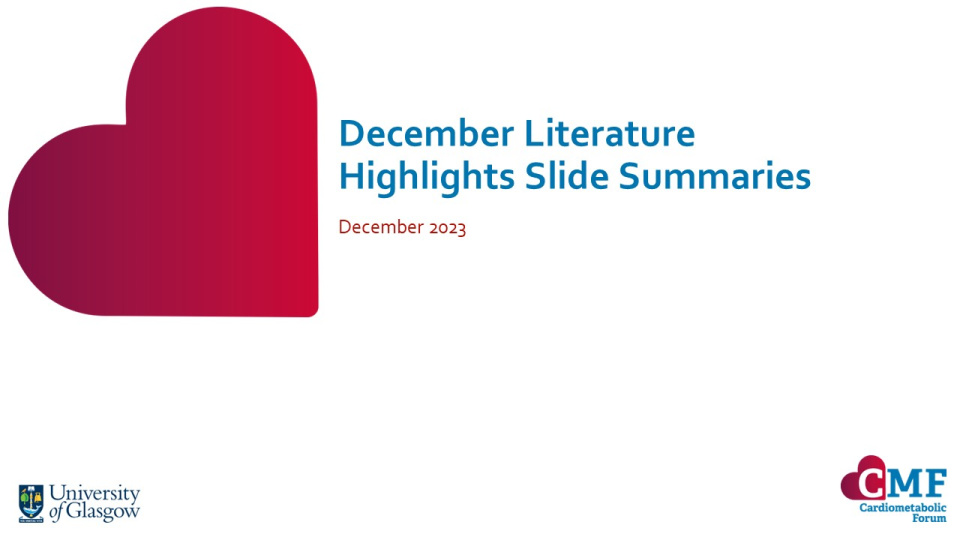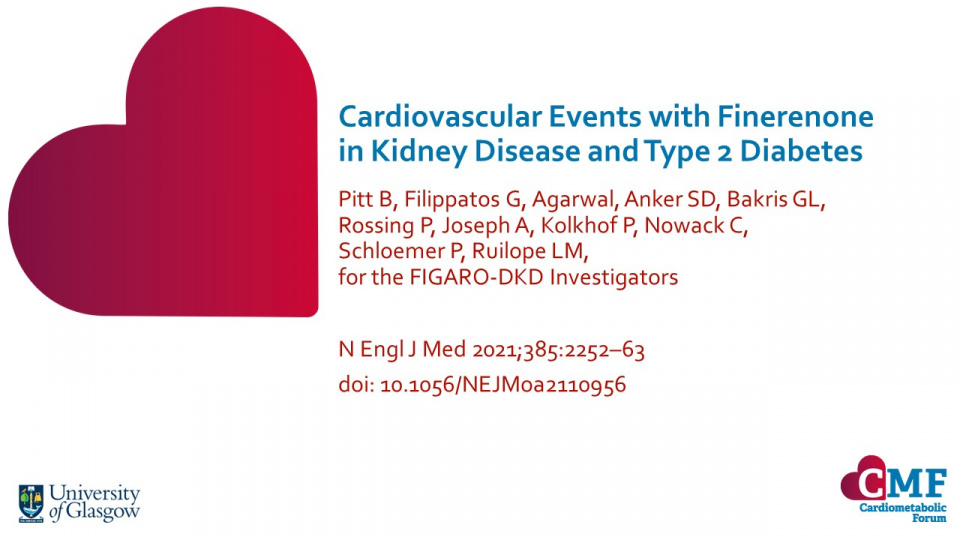Publications
Stay up to date with our literature reviews which are curated by experts to feature the most important publications released each month. Explore our publications for access to concise summary slides for your own use.
March 2022
Cardiovascular Events with Finerenone in Kidney Disease and Type 2 Diabetes
N Engl J Med 2021;385:2252–63 doi: 10.1056/NEJMoa2110956
Finerenone has desirable effects on cardiorenal outcomes in patients with stage 3 or 4 chronic kidney disease (CKD), type 2 diabetes and severely elevated albuminuria. The outcomes of the use of finerenone are unclear in patients with type 2 diabetes and a wider range of CKD.


